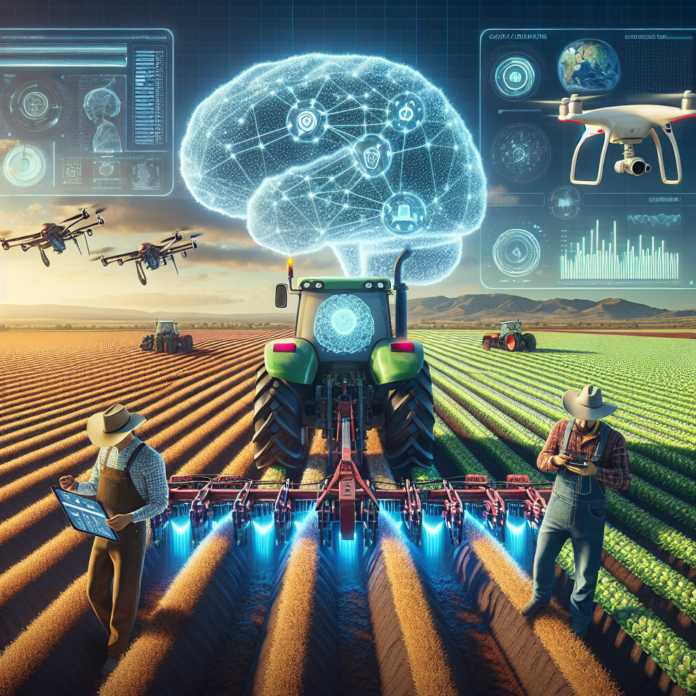AI and Precision Agriculture Transform Farming
“`html
AI and Precision Agriculture: Ushering in a New Era for Farming
In recent years, the agricultural sector has undergone a transformative shift, driven by advancements in artificial intelligence (AI) and precision agriculture technologies. These innovations are not only enhancing productivity but are also fostering sustainability in farming practices.
Understanding Precision Agriculture
Precision agriculture, often referred to as smart farming, utilizes technology to monitor and manage field variability in crops. By leveraging GPS, IoT devices, and data analytics, farmers can optimize inputs such as water, fertilizers, and pesticides. This targeted approach ensures that resources are used efficiently, reducing waste and enhancing crop yields.
The Role of AI in Agriculture
AI plays a pivotal role in precision agriculture by analyzing vast amounts of data collected from various sources. Machine learning algorithms can predict weather patterns, assess soil health, and identify potential pest outbreaks. This predictive capability enables farmers to make informed decisions, ultimately leading to improved crop management and healthier harvests.
Benefits of Integrating AI and Precision Agriculture
- Increased Efficiency: By tailoring farming practices to specific field conditions, farmers can maximize resource use, resulting in higher productivity.
- Sustainability: Reducing the overuse of chemicals and water contributes to environmental conservation and promotes sustainable farming practices.
- Cost Savings: Optimized resource management leads to lower operational costs, enhancing the profitability of farming operations.
- Data-Driven Decisions: Farmers equipped with AI-driven insights can make timely decisions that positively impact crop health and yield.
Real-World Applications
Several innovative applications are already making waves in the agricultural landscape. Drones equipped with imaging technology can survey large fields, providing farmers with real-time data on crop health. Autonomous tractors and robotic harvesting systems are revolutionizing labor-intensive tasks, allowing for greater precision and efficiency. Additionally, AI-driven platforms can analyze market trends, helping farmers make strategic decisions about planting and selling their produce.
The Future of Farming
The integration of AI and precision agriculture is paving the way for a new era in farming. As technology continues to evolve, we can expect further advancements that will enhance food production, improve environmental sustainability, and address the challenges posed by climate change. The future of agriculture lies in the hands of those who embrace these innovations, creating a more resilient and productive farming ecosystem.
“`
